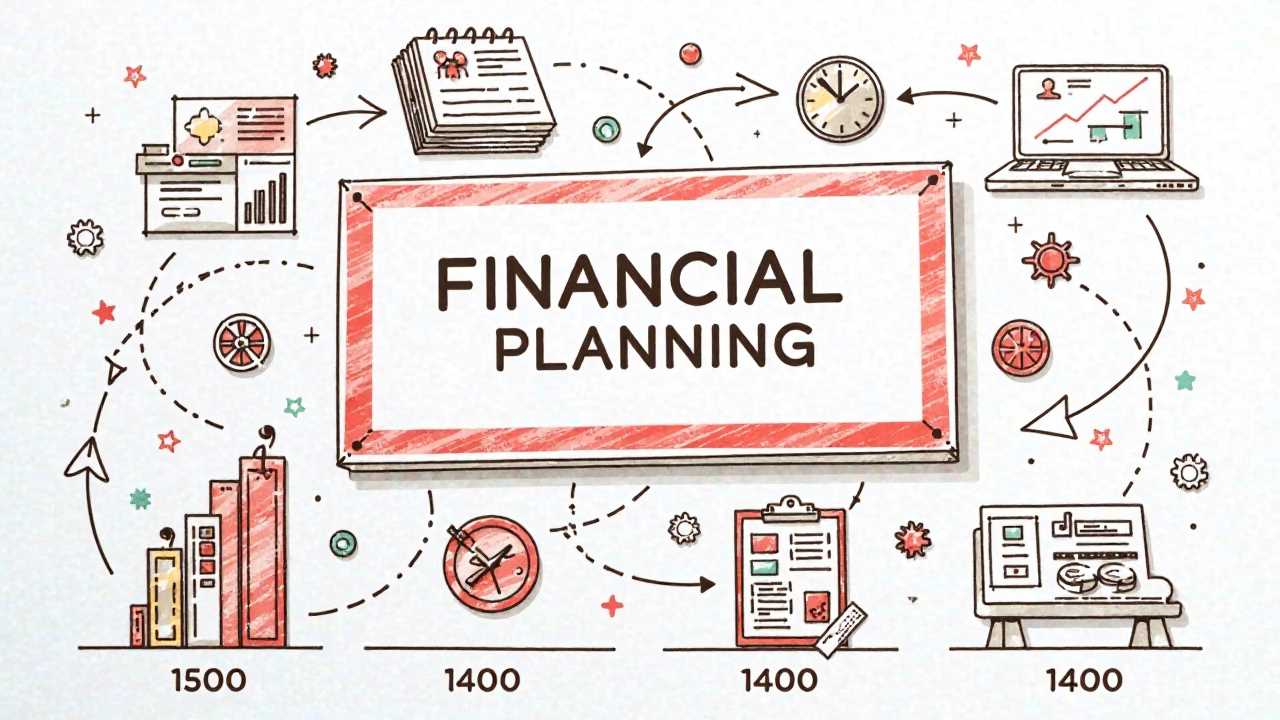
Understanding Personal Finance for College Students
Personal finance is a critical skill that every college student should master. It encompasses various aspects, including budgeting, savings, investments, debt management, and income strategies. By developing a strong foundation in these areas, students can achieve financial literacy and set themselves on a path toward financial independence.
The Importance of Budgeting
Budgeting is the cornerstone of effective personal finance management. It involves creating a plan for how to allocate your income and expenses. For college students, this means tracking tuition fees, rent, groceries, and entertainment costs. A well-structured budget helps students avoid overspending and ensures that they can meet their financial obligations.
To create a budget, start by listing all sources of income, including part-time jobs, scholarships, and parental support. Next, categorize your expenses into fixed and variable costs. Fixed costs are those that remain constant each month, such as rent and tuition, while variable costs can fluctuate, like dining out or shopping. By monitoring these expenses, students can identify areas where they can cut back and save money.
Effective Savings Strategies
Once a budget is in place, the next step is to focus on savings. Having a savings plan is vital for emergencies and future investments. Students should aim to save at least 20% of their income. This can be achieved through various strategies:
1. Open a High-Interest Savings Account: This allows your money to grow while remaining accessible for emergencies.
2. Automate Savings: Set up automatic transfers from your checking account to your savings account each month. This ensures that you prioritize savings before spending.
3. Create an Emergency Fund: Aim to save three to six months' worth of living expenses. This fund will provide a safety net in case of unexpected expenses, such as medical emergencies or job loss.
Investing for the Future
Investing may seem daunting for college students, but it is an essential part of building wealth over time. Starting early allows students to take advantage of compound interest, which can significantly increase the value of investments. Here are some investment options to consider:
1. Stock Market: Investing in stocks can yield high returns, but it also comes with risks. Students should educate themselves about the stock market and consider starting with low-cost index funds or exchange-traded funds (ETFs).
2. Retirement Accounts: If you have a part-time job, consider contributing to a retirement account, such as a Roth IRA. This not only helps you save for the future but also provides tax advantages.
3. Real Estate: While this may require more capital, investing in real estate can be a lucrative long-term strategy. Consider starting with rental properties or real estate investment trusts (REITs).
Debt Management Techniques
Managing debt is a significant concern for many college students. Student loans, credit cards, and other forms of debt can quickly accumulate, leading to financial stress. Here are some effective debt management techniques:
1. Understand Your Debt: Keep track of all your debts, including interest rates and payment due dates. This will help you prioritize which debts to pay off first.
2. Create a Repayment Plan: Develop a strategy for paying off your debts. Consider the snowball method, where you pay off the smallest debts first, or the avalanche method, where you focus on the debts with the highest interest rates.
3. Avoid Unnecessary Debt: Be mindful of credit card usage and avoid taking on additional loans unless absolutely necessary. Living within your means is crucial for maintaining financial health.
Income Strategies for College Students
Increasing your income can significantly impact your financial situation. Here are some effective income strategies for college students:
1. Part-Time Jobs: Look for flexible part-time jobs that can accommodate your class schedule. Positions in retail, tutoring, or on-campus jobs can provide a steady income.
2. Freelancing: Utilize your skills, such as writing, graphic design, or programming, to take on freelance projects. Websites like Upwork and Fiverr can help you find clients.
3. Internships: Seek internships related to your field of study. These not only provide valuable experience but may also offer stipends or hourly pay.
Enhancing Financial Literacy
Financial literacy is the ability to understand and effectively manage your financial resources. As college students, enhancing your financial literacy is vital for making informed decisions about budgeting, savings, investments, and debt management. Here are some ways to improve your financial literacy:
1. Take Finance Courses: Many colleges offer personal finance courses that cover essential topics. Enroll in these classes to gain a deeper understanding of financial concepts.
2. Read Financial Books and Blogs: There are countless resources available that provide valuable insights into personal finance. Consider reading books by financial experts or following reputable finance blogs.
3. Attend Workshops and Seminars: Look for workshops offered by your college or community organizations. These events often cover various financial topics and provide practical advice.
Achieving Financial Freedom
Mastering personal finance is an ongoing journey that requires dedication and discipline. By focusing on budgeting, savings, investments, debt management, and income strategies, college students can build a solid financial foundation. Enhancing financial literacy will empower students to make informed decisions and ultimately achieve financial freedom. With the right tools and knowledge, students can navigate their financial landscape confidently and secure a prosperous future.
 Network marketingWork from home jobsEntrepreneurshipAffiliate marketingFinancial freedomPrivacy PolicyTerms And Conditions
Network marketingWork from home jobsEntrepreneurshipAffiliate marketingFinancial freedomPrivacy PolicyTerms And Conditions
